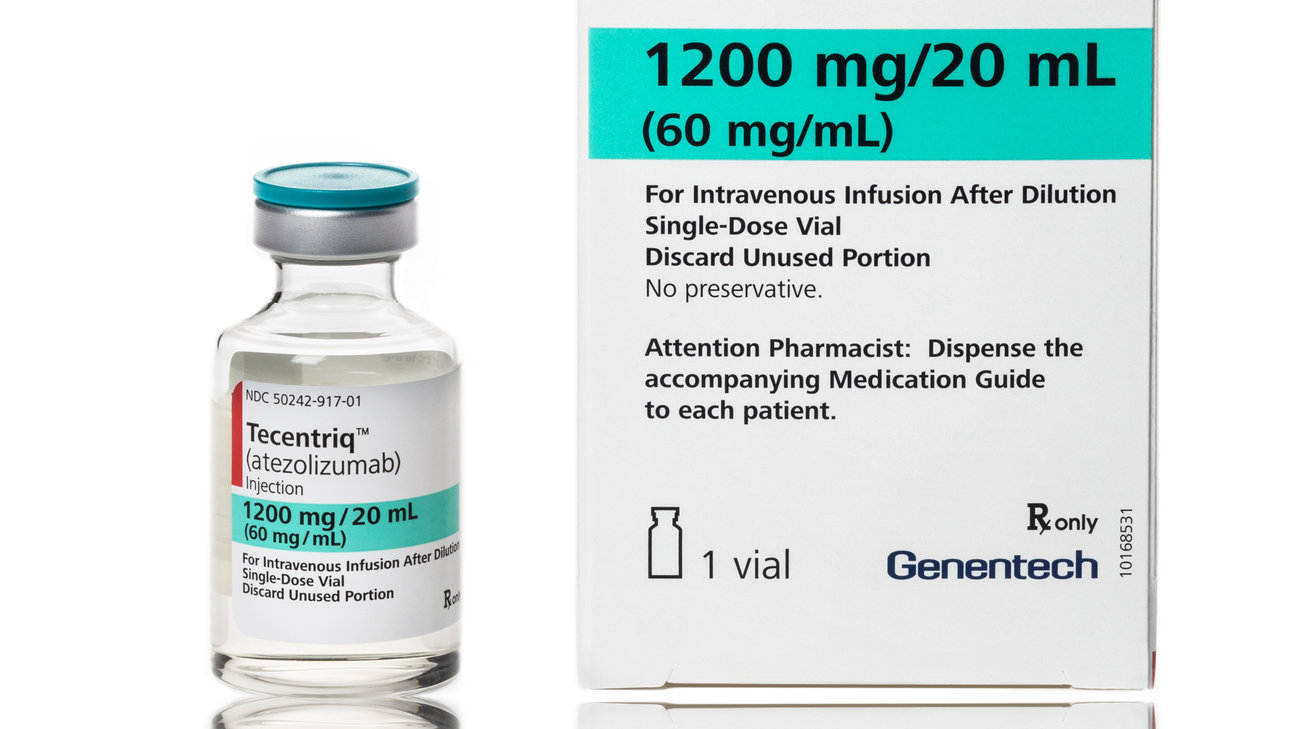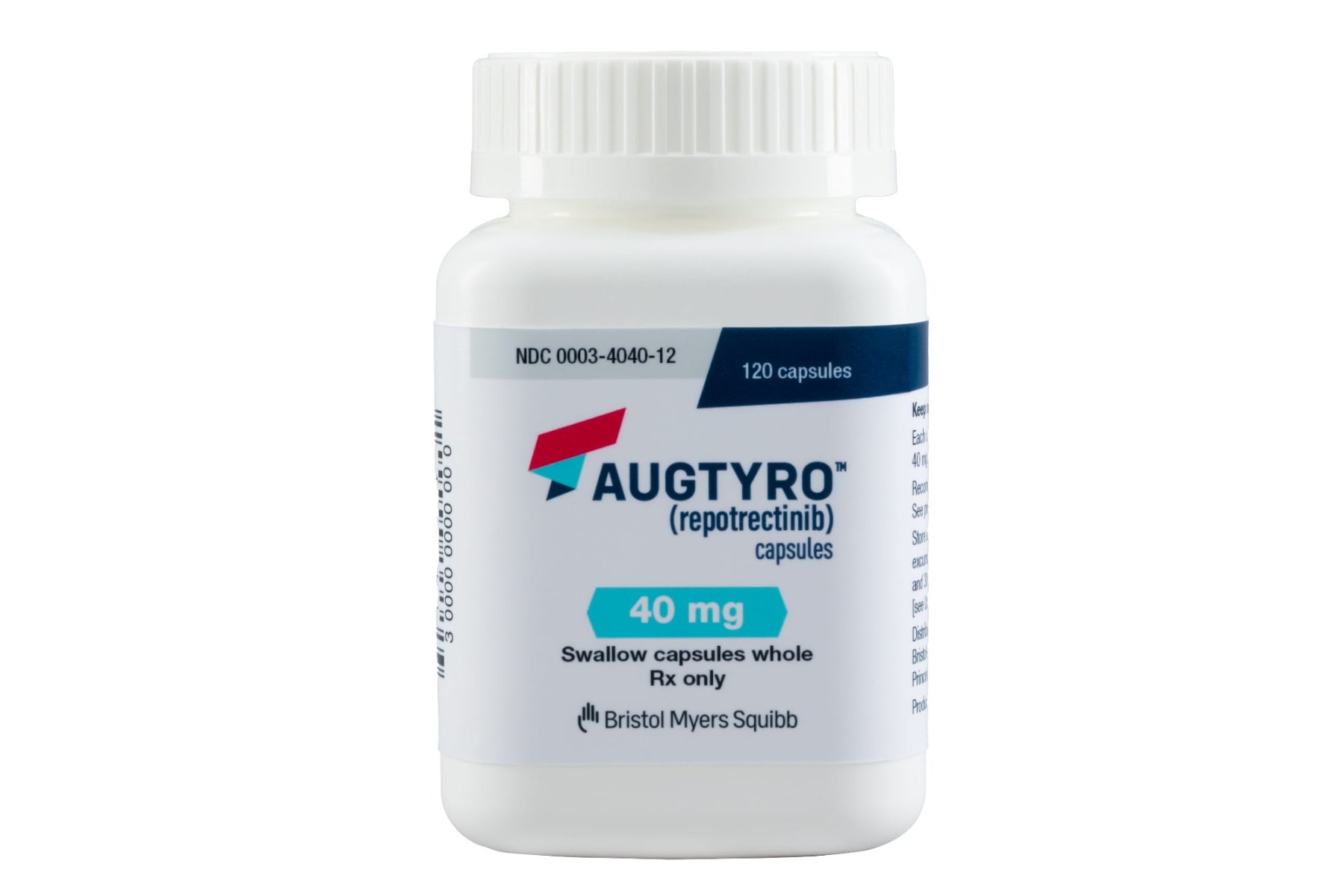Tecentriq (Atezolizumab) vs Augtyro (repotrectinib)
Tecentriq (Atezolizumab) vs Augtyro (repotrectinib)
Tecentriq (Atezolizumab) is an immune checkpoint inhibitor used primarily to treat certain types of urinary bladder, lung, breast, and liver cancers by helping the immune system recognize and attack cancer cells. Augtyro (repotrectinib), on the other hand, is a tyrosine kinase inhibitor that targets specific genetic mutations and is used to treat cancers such as non-small cell lung cancer (NSCLC) and solid tumors with a neurotrophic tyrosine receptor kinase (NTRK) gene fusion. When deciding between Tecentriq and Augtyro, it is crucial to consider the specific type of cancer, its genetic makeup, and the patient's overall health, as each medication targets different pathways and mechanisms within the cancer cells.
Difference between Tecentriq and Augtyro
| Metric | Tecentriq (Atezolizumab) | Augtyro (repotrectinib) |
|---|---|---|
| Generic name | Atezolizumab | Repotrectinib |
| Indications | Urothelial carcinoma, non-small cell lung cancer, triple-negative breast cancer | Advanced solid tumors with NTRK or ROS1 gene fusions |
| Mechanism of action | PD-L1 inhibitor, immune checkpoint inhibitor | Tyrosine kinase inhibitor |
| Brand names | Tecentriq | Augtyro |
| Administrative route | Intravenous | Oral |
| Side effects | Fatigue, nausea, decreased appetite, urinary tract infections, fever | Dizziness, constipation, fatigue, edema, myalgia |
| Contraindications | None known specifically; caution in patients with autoimmune disease or prior organ transplantation | None known specifically; caution in patients with QT prolongation |
| Drug class | Monoclonal antibody, Immune checkpoint inhibitor | Tyrosine kinase inhibitor |
| Manufacturer | Genentech (Roche) | Turning Point Therapeutics |
Efficacy
Tecentriq (Atezolizumab) Efficacy in Lung Cancer
Tecentriq (Atezolizumab) is a programmed death-ligand 1 (PD-L1) blocking antibody used in the treatment of various types of cancer, including lung cancer. Specifically, for non-small cell lung cancer (NSCLC), Tecentriq has been shown to be effective as both a monotherapy and in combination with chemotherapy. Clinical trials have demonstrated that Tecentriq can significantly improve overall survival and progression-free survival in patients with NSCLC compared to chemotherapy alone. The efficacy of Tecentriq is particularly notable in patients whose tumors express PD-L1, as the blockade of this pathway helps to activate the immune system to target and destroy cancer cells.
When used as a first-line treatment for metastatic NSCLC, Tecentriq, in combination with chemotherapy, has shown a substantial benefit in extending the lives of patients without their disease worsening. This combination has become a standard of care for patients with advanced lung cancer without targetable genetic mutations. The efficacy of Tecentriq has also been established in the treatment of small cell lung cancer (SCLC), with improvements in survival outcomes when added to the standard chemotherapy regimen.
Augtyro (Repotrectinib) Efficacy in Lung Cancer
Augtyro (Repotrectinib) is an investigational, next-generation tyrosine kinase inhibitor (TKI) that targets the tropomyosin receptor kinase (TRK), ROS1, and anaplastic lymphoma kinase (ALK) fusion proteins. It is being studied for its efficacy in treating non-small cell lung cancer (NSCLC) with these specific genetic alterations. Early clinical trials have shown promising results, indicating that repotrectinib has potent anti-tumor activity in NSCLC patients with ROS1 or NTRK fusions, particularly in those who have developed resistance to prior therapies targeting these mutations.
Repotrectinib's design allows for the targeting of resistance mutations that can develop after treatment with earlier-generation TKIs. This feature potentially offers an effective treatment option for patients who have limited alternatives due to resistance. While the data is still emerging, the results suggest that repotrectinib could provide a new line of therapy for NSCLC patients with specific genetic profiles. It is important to note that as of the knowledge cutoff date, repotrectinib is still under clinical investigation and has not yet received approval from regulatory agencies for the treatment of lung cancer or any other indication.
Regulatory Agency Approvals
Tecentriq
-
European Medical Agency (EMA), European Union

-
Food and Drug Administration (FDA), USA

-
Health Canada

-
Pharmaceuticals and Medical Devices Agency (PMDA), Japan

-
Therapeutic Goods Administration (TGA), Australia

-
Medsafe (NZ)

Augtyro
-
Food and Drug Administration (FDA), USA

Access Tecentriq or Augtyro today
If Tecentriq or Augtyro are not approved or available in your country (e.g. due to supply issues), you can access them via Everyone.org.
How it works

Make an enquiry
Choose the medicine you want to buy, answer a couple of questions, and upload your prescription to speed things up. We’ll get back to you within 24 hours.


Make an enquiry
Choose the medicine you want to buy, answer a couple of questions, and upload your prescription to speed things up. We’ll get back to you within 24 hours.


Breeze through the paperwork
We'll guide you through the required documents for importing unapproved medicine, ensuring you have all the necessary information.


Get a personalized quote
We’ll prepare a quote for you, including medicine costs and any shipping, administrative, or import fees that may apply.


Receive your medicine
Accept the quote and we’ll handle the rest - sourcing and safely delivering your medicine.

Some text on this page has been automatically generated. Speak to your physician before you start a new treatment or medication.
Let's talk
If you have any questions, call us or send us a message through WhatsApp or email:
Contact us




